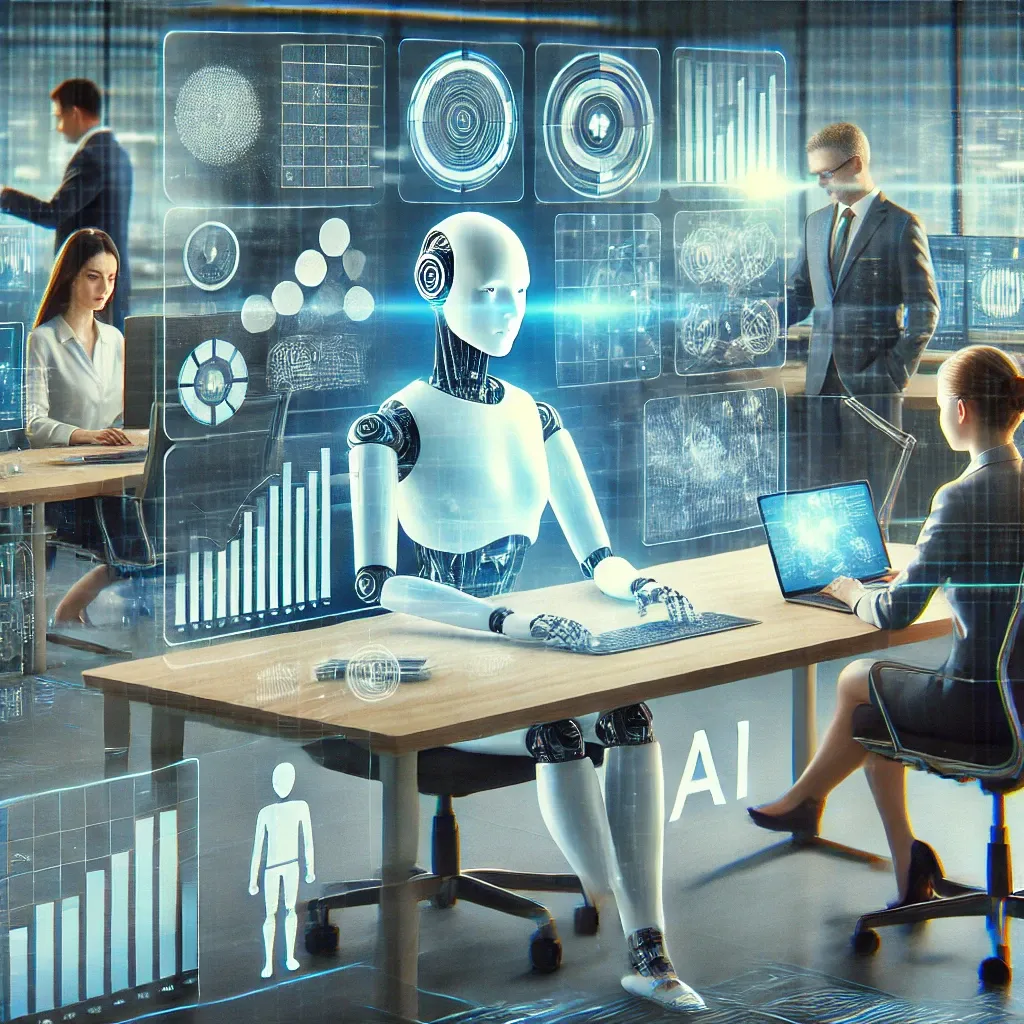
The Rise of AI Employees: Transforming the Workplace
The concept of AI employees—autonomous systems capable of performing tasks traditionally handled by humans—is revolutionizing the modern workplace. From customer service chatbots to advanced data analysts, AI employees are redefining efficiency, productivity, and the nature of work.
organizational rolesWhat Are AI Employees?
AI employees are advanced artificial intelligence systems designed to perform specific organizational roles. Unlike traditional software tools, AI employees can:
- Learn and Adapt: Utilize machine learning to improve over time.
- Communicate: Interact with humans seamlessly through natural language processing.
- Make Decisions: Use algorithms to analyze data and choose optimal actions.
- Autonomously Execute Tasks: Complete work without direct human intervention
- Applications Across Industries
AI employees are being deployed in various sectors, including:
- Customer Service:
- AI chatbots handle inquiries, troubleshoot issues, and guide users.
- Example: Virtual assistants like ChatGPT respond 24/7 to customer queries.
- Finance:
- AI analyzes market trends, detects fraud, and automates financial reporting.
- Example: Trading bots making real-time decisions on stock markets.
- Healthcare:
- AI assists with diagnostics, scheduling, and patient care.
- Example: AI systems analyze medical scans to detect diseases faster.
- Marketing:
- AI creates personalized campaigns, writes content, and analyzes consumer behavior.
- Example: Generative AI tools crafting engaging ad copy.
The Rise of AI Employees: Transforming the Workplace
The concept of AI employees—autonomous systems capable of performing tasks traditionally handled by humans—is revolutionizing the modern workplace. From customer service chatbots to advanced data analysts, AI employees are redefining efficiency, productivity, and the nature of work.
What Are AI Employees?
AI employees are advanced artificial intelligence systems designed to perform specific organizational roles. Unlike conventional software tools, AI employees can:
- Learn and Adapt: Utilize machine learning to improve over time.
- Communicate: Interact with humans seamlessly through natural language processing.
- Make Decisions: Use algorithms to analyze data and choose optimal actions.
- Autonomously Execute Tasks: Complete work without direct human intervention.
Applications Across Industries
AI employees are being deployed in various sectors, including:
- Customer Service:
- AI chatbots handle inquiries, troubleshoot issues, and guide users.
- Example: Virtual assistants like ChatGPT respond 24/7 to customer queries.
- Finance:
- AI analyzes market trends, detects fraud, and automates financial reporting.
- Example: Trading bots making real-time decisions on stock markets.
- Healthcare:
- AI assists with diagnostics, scheduling, and patient care.
- Example: AI systems analyze medical scans to detect diseases faster.
- Marketing:
- AI creates personalized campaigns, writes content, and analyzes consumer behavior.
- Example: Generative AI tools crafting engaging ad copy.
Benefits of AI Employees
- Cost Efficiency: Reduce overhead by automating repetitive tasks.
- Scalability: Handle large workloads without requiring additional resources.
- Consistency: Deliver uniform results, free of human error or fatigue.
- Availability: Operate 24/7, ensuring uninterrupted service.
Challenges and Concerns
- Job Displacement: Fear of AI replacing human roles in some industries.
- Ethical Issues: Concerns over data privacy, decision-making transparency, and bias in AI algorithms.
- Integration Costs: High initial investment and the need for technical expertise.
- Trust and Adaptation: Resistance from employees and customers unfamiliar with AI.
The Future of AI Employees
As AI technology advances, the role of AI employees will likely evolve from assisting humans to collaborating with them. Businesses will focus on striking a balance between human creativity and AI efficiency. For employees, embracing AI as a tool rather than a competitor will be key to staying relevant.
AI Employees are no longer a futuristic concept; they are a present reality shaping the future of work. Their profound impact on industries offers opportunities to innovate, streamline processes, and unlock new productivity levels. The challenge lies in ensuring that this technological evolution benefits all stakeholders.
Ai Edition - Editorial Team
#AI Workforce #Future Of Work #AI Automation #AI In Business #Tech Innovation #Digital Workplace

